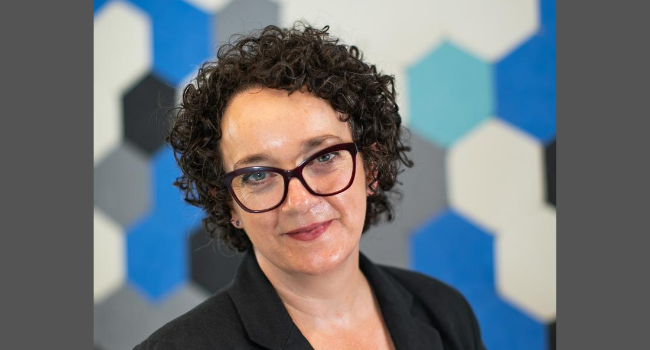Screen NSW is committed to growing, empowering and strengthening the arts, screen and culture sectors in NSW through the impact of COVID-19.
As several productions once again commence filming, Head of Screen NSW Grainne Brunsdon tells Ausfilm how the agency is supporting international and local productions on home soil to collectively tell ambitious and diverse stories.
How has the NSW film industry adapted in COVID-19 times?
The NSW film industry was significantly impacted as a result of restrictions relating to COVID-19 Public Health Orders from March with many local and international productions delayed. In July, Screen NSW introduced a Slate Development Funding Program for NSW production businesses significantly affected by COVID to keep things ticking over during the production hiatus.
Most post, visual effects and animation companies for international and national productions were able to work through the shutdown by quickly establishing remote working arrangements, though some were impacted by filming delays.
Happily, we are now seeing many productions back at work. They are adapting by adopting a range of mitigation measures and drawing on the COVID-SAFE Guidelines developed by the Australian Screen Sector Task Force.
The remake of the Stephen King classic Children of the Corn was an example of a production that kept filming within the restrictions of COVID-19. What is involved in keeping productions going during these uncertain times?
The shoot for Children of the Corn happened through the height of COVID-19 restrictions. The cast and crew were isolated in a hotel for the duration of the shoot, but despite this, they demonstrated filming safely was still possible and some of the risk mitigation practices they adopted have contributed to the boiler plate for COVID-safe filming.
The COVID-SAFE Guidelines provide the support productions need to safely resume filming. Each production needs specific control measures to mitigate COVID-19 risks to its personnel, depending on its location, scale and content. Some content, such as intimate scenes, may not be feasible at the moment. There are also changes to wardrobe and catering because of the requirement for physical distancing, special sanitisation measures, and PPE in make-up departments.
The Guidelines are an evolving document so producers should check the Screen Australia website to make sure they are looking at the latest edition.
Inevitably, productions have had to brace for an increase in costs – somewhere between 5-15 per cent – or in some cases more.
Great news about the latest $400 million Federal Arts investment in the film industry! Who is eligible and how can organisations be considered for funding?
It’s exciting to see the Federal investment in the screen industry which will boost local jobs and international partnerships. In due time, the new scheme will allow for new and paused productions from Hollywood and around the world to take place in COVID-safe locations in Australia.
The investment is available to large scale international productions (spending at least $15 million) that meet the eligibility criteria for the Location Offset, use the services of one or more Australian post, digital or visual effects providers, and secure support from relevant state or territory governments. The new funds bring the total incentive to around 30% of qualifying spend for eligible productions and provide certainty over the next seven years, which ensures Australia is internationally competitive and allows studios to plan a series of productions here over that period.
What international productions will begin filming in NSW this year?
Confirmed productions include the Hulu-commissioned limited series Nine Perfect Strangers, starring Nicole Kidman and Melissa McCarthy, which has just begun filming in the beautiful Northern Rivers area of NSW. Marvel’s Shang-Chi and the Legend of the Ten Rings has also resumed filming at Fox Studios and on location. Marvel will also shoot Thor: Love and Thunder in NSW from the beginning of next year, and Dr George Miller’s next film Three Thousand Years of Longing is also filming later this year.
What is the biggest drawcard for international companies to bring their productions to NSW right now?
We’ve created effective safety measures to allow productions to proceed in NSW, while always consulting NSW Health Guidelines. As always, NSW can offer A-level crews and facilities.
We also have a dedicated Production Attraction Team at Screen NSW who can provide guidance for projects in terms of locations, finding studio space and navigating regulations and permit authorities. Productions need to use one or more Australian PDV houses to qualify for the federal Location Incentive. NSW has the highest concentration of post and VFX providers in Australia and a guaranteed 10 per cent rebate on PDV work done in the state.
Watch the Screen NSW Showreel:
Snapshot of Screen NSW activity
- $600 million in screen production has been attracted to NSW since 2018-19, including the creation of 10,000 jobs. This underlines that NSW is the home of the Australian screen industry – accounting for nearly 60 per cent of production.
- Over the past couple of years, our Made in NSW fund has attracted 8 large-scale international productions including Peter Rabbit 2, the Marvel productions Shang Chi and the Legend of the Ten Rings, and Thor: Love and Thunder, and the modestly budgeted feature film The Invisible Man, starring Elisabeth Moss, which was the top grossing film in the United States for two weeks, amongst other worldwide achievements.
- NSW is now one of the world’s most competitive locations for post-production, digital and visual production (PDV). Over $210 million in NSW expenditure and work for over 2,400 people has resulted from the NSW introduction of a 10 per cent rebate for PDV on 1 October 2019.
- Over $1.7 million in funding will support 18 NSW production companies to deliver 66 projects through Screen NSW’s new Slate Development Fund, part of the Government’s COVID-19 support initiatives.
